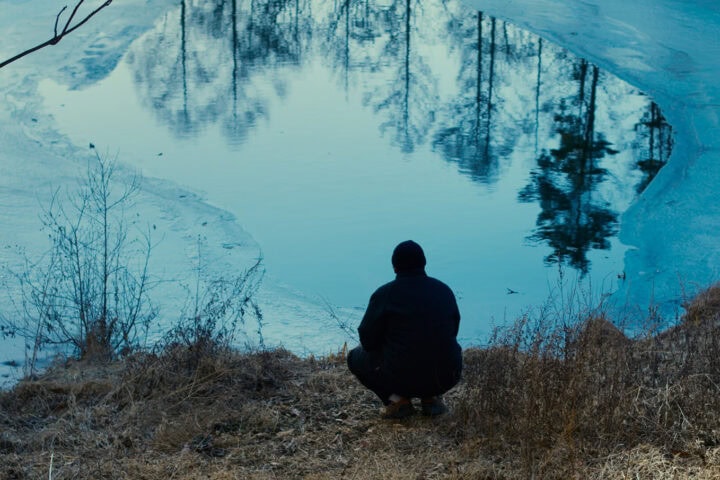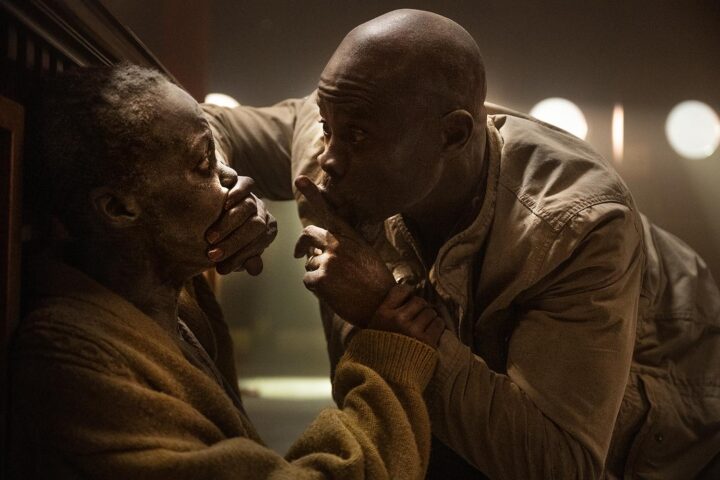Picking up three centuries after War for the Planet of the Apes, the 2017 conclusion of Matt Reeves’s trilogy, Wes Ball’s Kingdom of the Planet of the Apes at long last brings the setting of the reboot franchise in line with Franklin J. Schaffner’s original Planet of the Apes. Here, the descendants of the first hyper-intelligent primates now rule the world and have established solid civilizations, while the nearly extinct human species has turned feral.
With humans reduced to a ragtag population of wild animals, conflict is now mostly evident between rival groups of apes. One such collision occurs at the start of Kingdom of the Planet of the Apes, with one clan overrun and pressed into servitude by Proximus Caesar (Kevin Durand), an ambitious bonobo styling himself as the first king of apes. Only one member of the smaller group, the young chimpanzee Noa (Owen Teague), eludes death or capture, and he sets off in pursuit to save his people and overthrow Durand’s would-be tyrant bonobo.
This straightforward narrative inadvertently highlights the underlying shallowness that’s defined the reboot film series. Both Pierre Boulle’s original novel and the 1968 film dealt not only with nuclear war anxieties but subtly played on the history of racist language and images equating Black people with apes and monkeys as subhuman. In showing black and brown apes as intellectually dominant over a cast of (conspicuously white) nonverbal humans, the original Planet of the Apes film pointedly illustrated just how easily a presumed master race could deteriorate under the lash of the whip and a barred access to education.
Comparatively, Reeves’s reboot trilogy lacked the same political thrust, paving its road to hell with good intentions and only the mildest critique of unchecked tech sector greed. Those films even stressed that humanity’s degradation stems from the same virus that granted primates heightened intelligence, completely doing away with the horror of how small a push it would take to undo hundreds of thousands of years of social and intellectual growth.
Written by Josh Friedman, Kingdom of the Planet of the Apes opens with a text crawl reminding the audience of these circumstances, which preemptively blunts the impact of Noa stumbling across a human woman (Freya Allen) who displays above-average intelligence, completely upending his understanding of humans. The film builds a number of twists around the woman’s level of awareness, but a virus can affect each host differently, and certain revelations intended to be bombshells instead feel perfectly logical and unremarkable. So, too, does the larger plot of Noa’s quest for revenge feel underdeveloped, often hinging on a sudden but ill-explained wrinkle to suggest a depth that dissipates under the slightest scrutiny.
Far more engaging are the quieter moments in which Noa enters the wider world beyond the confines of his village and is exposed to the dilapidated remains of the former rulers of Earth. Like Homer living among the ruins of the Bronze Age collapse and crafting a mythic history of gods and heroes to explain the relics of an advanced but lost time, the apes can only stare at overgrown remnants of high-rises or the gnarled, rusted ship hulls lining beaches like the bones of dead leviathans and struggle to imagine how they got there.
Durand homes in on this underlying wonder in how he plays Proximus Caesar. Though single-mindedly covetous of gaining the intelligence needed to forge his own great creations, the warlord cannot keep a note of reverence out of his voice as he dreams of the world that was.
With Wētā FX once again providing the visual effects, the motion capture here is a predictably exemplary display of the technology, and Kingdom of the Planet of the Apes is often spellbinding in close-ups that reveal an astonishing range of expressions on the apes’ faces. In the more action-driven scenes, though, such details are lost, with the apes tending to blur into awkwardly lumbering bulks colliding with one another. These widescreen skirmishes exude none of the grace and realism that imbue the shots of individuals or small groups of primates.
It’s to Ball’s credit that so much of the film unfurls in a somber register. Kingdom of the Planet of the Apes is less interested in piling on blockbuster spectacle than in contemplating the withering remains of one species and the first constructions and social organizations of another. Much of the film was shot on location, lending weight to the depiction of a quiet, reclaimed nature, but also making the fully animated showstoppers feel that much less gripping. By the time the demands of big-budget spectacle take over in the final act, a film that initially stands out from the pack in imagining a different perspective of the world ends up looking all too disappointingly like everything else in the current mega-budget cinema landscape.
Since 2001, we've brought you uncompromising, candid takes on the world of film, music, television, video games, theater, and more. Independently owned and operated publications like Slant have been hit hard in recent years, but we’re committed to keeping our content free and accessible—meaning no paywalls or fees.
If you like what we do, please consider subscribing to our Patreon or making a donation.






